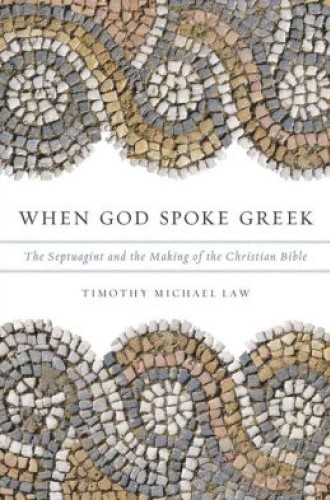Old Testament
Rediscovering Eve: Ancient Israelite Women in Context, by Carol Meyers. A distinguished archaeologist, Meyers first published Discovering Eve in 1988, using cultural anthropology, ethnography, and archaeology to reconstruct the everyday lives of Israelite women in ancient times. Since then a dramatic increase in the amount of available information about ancient Israel has compelled her not merely to update the prior book, but to outline anew what is known about ancient households and the economic, reproductive, sociopolitical, and religious activities shaping women’s lives.
Israel’s Poetry of Resistance: Africana Perspectives on Early Hebrew Verse, by Hugh R. Page Jr. A prominent African-American scholar reads Israel’s earliest poems alongside black experience in America, including the author’s own upbringing in Baltimore close to Johns Hopkins University, the center of much scholarly discovery concerning this literature. Offering rich translations of the poetry, Page reads the Song of the Sea (Exod. 15) in concert with Zora Neale Hurston’s Moses, Man of the Mountain, the Song of Deborah (Judges 5) in connection with freedom fighter Harriet Tubman, and several other well-known early poems with other movements and moments in Africana. He concludes with reflections relating this ancient poetry to black resistance spirituality.
Read our latest issue or browse back issues.
When God Spoke Greek: The Septuagint and the Making of the Christian Bible, by Timothy Michael Law. The Greek Septuagint version of the Hebrew Bible arose among diasporic Jews in Hellenistic times and continued its preeminence for gentile Christianity until the fourth century, when Jerome translated the Bible directly from Hebrew to Latin. Despite its eclipse, the Septuagint has had deep and lasting effects on Christian theology and biblical interpretation. In lively prose, Law traces its fascinating story, suggesting that the Septuagint has been wrongfully neglected.
Portraits of a Mature God: Choices in Old Testament Theology, by Mark McEntire. In this readable, interesting, succinct, and pastorally significant theology of God, McEntire emphasizes the God portrayed in the later books of the Old Testament, “the God at the end of the story,” a character who develops over time to become, finally, a restoring God who “moves in the shadows, indirectly influencing events, and does not perform ‘mighty acts’”—a God more recognizable to contemporary worshipers than earlier versions.
The Lord of the Psalms, by Patrick D. Miller. This gentle, conversational, sophisticated, and pastoral book explores the representation of God in the book of Psalms. Important themes include the reality of God, God’s standing in the cosmic order, body language regarding God, God as Creator, memory and hope, and divine mercy.
Chasing Mystery: A Catholic Biblical Theology, by Carey Walsh. With the aim of addressing contemporary spiritual need, this enchantingly written book explores the ways various scriptural passages and genres negotiate, through mystical encounters, the problem of divine presence and absence. Walsh presents scripture’s sly program of wonder initiated in Genesis 1—its library of religious experiences which prompt us to pay attention to our own theologies. Sensitizing readers to the mystery underlying numinous encounters with God, she invites them to notice the burning bushes and humble mangers in our own lives.
The Nature of Creation: Examining the Bible and Science, by Mark Harris. Harris carefully examines the thorny theological issues that are raised when biblical creation accounts are read alongside contemporary evolutionary science. Although the idea of God as Creator suffuses the whole Bible, it is best to read the Bible in conjunction with, and not in opposition to, scientific understandings of the world. Harris’s book raises the level of discussion far past arguments about the age of the earth and the provability of intelligent design and shows how scientific developments can sharpen our reading of scriptural cosmologies.
Parental Guidance Advised: Adult Preaching from the Old Testament, edited by Alyce M. McKenzie and Charles L. Aaron Jr. Professors and preachers team up to offer a provocative book that raises the Old Testament from neglect and presents Jonah’s comic elements, the biblical God’s loving-kindness, the realism of flawed biblical characters, scripture’s vivid eroticism, and several other themes that intersect with 21st-century concerns.
The King James Version at 400: Assessing Its Genius as Bible Translation and Its Literary Influence, edited by David G. Burke, John F. Kutsko, and Philip H. Towner. Thirty-two prominent scholars discuss the significance of the King James Bible, from its history and inception to its impact on the English language, Christian liturgy, Jewish translation, civil religion, and biblical interpretation around the world in the past four centuries.
The Dead Sea Scrolls, by Peter W. Flint. In this well-structured, readable, comprehensive introduction to the Dead Sea Scrolls and their discovery, contents, and significance, Flint explains what was found, where and when, and how it has been interpreted. He explores the Jewish movements active at the time of the scrolls’ composition, citing several early writers’ descriptions of the Essene community, and discusses the religious thought and practice reflected in the scrolls. Comparisons of the scrolls with parts of the New Testament conclude the book.
















